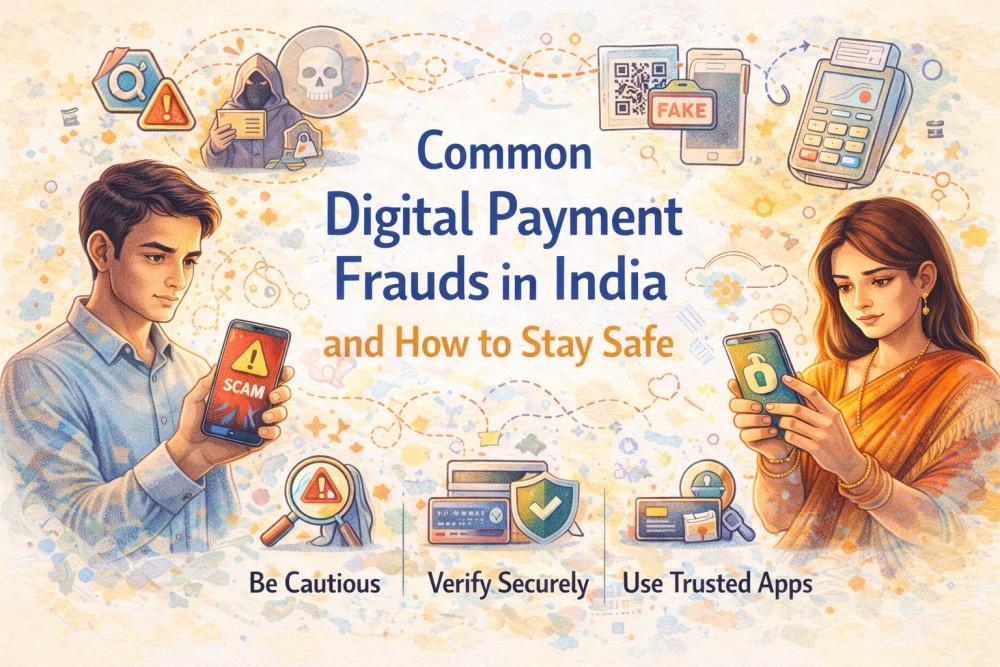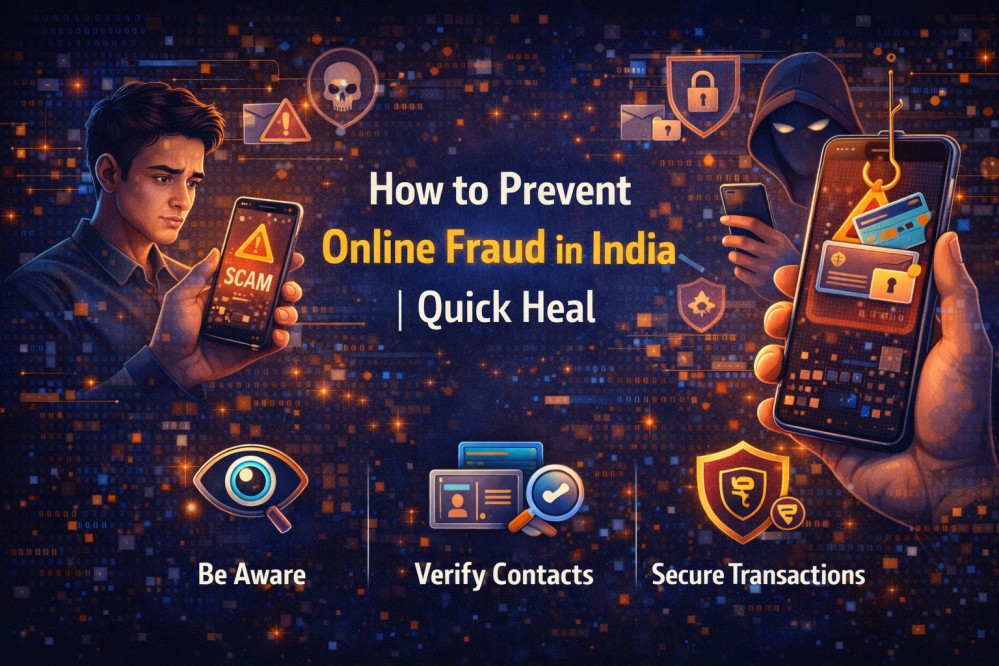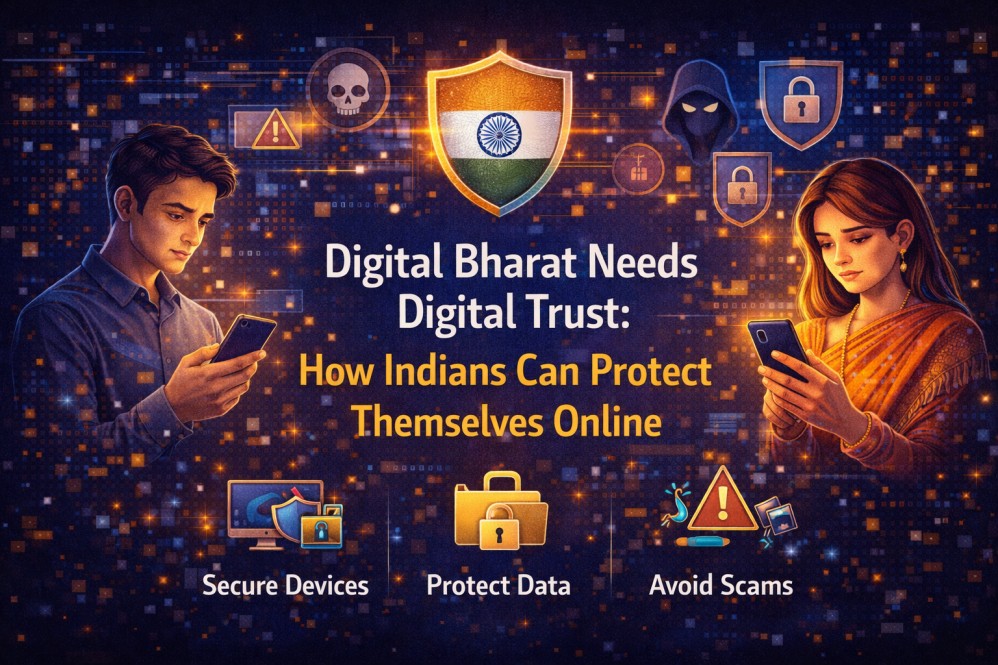
May

How to Spot and Avoid Online Dating Scams
-
Quick Heal / 9 months
- May 27, 2025
- 0
Online dating has become increasingly popular, offering a convenient way to connect with potential partners. However, the rise of online dating has also led to a surge in dating scams. Scammers exploit the vulnerability of those seeking love, causing emotional distress and financial loss. It’s crucial to be cautious and aware of the risks when navigating the digital dating world.
In this blog, we’ll explore common types of online dating scams, red flags to watch out for, and practical tips to protect yourself from falling victim to these deceptive schemes. By staying informed and vigilant, you can enjoy the benefits of online dating while minimizing the risk of becoming a target for scammers.
Common Types of Online Dating Scams
Cyber romance scams come in various forms, each designed to manipulate and exploit unsuspecting victims. Some common types include:
- Financial Scams: Scammers may claim to be in a financial crisis and request money for emergencies, medical expenses, or travel costs.
- Identity Theft: They may ask for personal information, such as your full name, address, or financial details, which they can use for identity theft or other fraudulent activities.
- Sextortion: Scammers may engage in intimate conversations or request explicit photos, later using them to blackmail the victim for money or favors.
Real-life examples of these scams can be found in news reports and online forums, where victims share their experiences and warn others about the tactics used by scammers.
Red Flags to Watch Out For
Recognizing the warning signs of a potential online dating scam is essential. Here are some red flags to be aware of:
- Professing strong feelings or love quickly, often within a few conversations
- Refusing to meet in person or constantly making excuses to avoid face-to-face meetings
- Inconsistencies in their stories or personal details
- Requesting money or financial assistance, especially if they claim to be overseas
- Pressuring you to move the conversation off the dating platform to a private channel
These behaviors should raise suspicion and prompt you to proceed with caution. Trust your instincts and don’t ignore any gut feelings that something isn’t right.
How Scammers Create Fake Identities
Scammers often create fake online identities to gain the trust of their victims. They may use stolen photos, fabricated backstories, and false information to appear genuine. These fake profiles are carefully crafted to appeal to the emotions of potential targets.
Scammers may claim to have a prestigious job, such as a doctor, military personnel, or successful businessperson. They may also create a sense of urgency or play on sympathy by sharing stories of personal hardship or tragedy. By exploiting people’s emotions, scammers aim to build a false sense of connection and trust.
Protecting Your Personal Information
Safeguarding your personal information is crucial when engaging in online dating. Avoid sharing sensitive details, such as your full name, address, financial information, or social security number, especially in the early stages of communication.
Be cautious about revealing your place of work, family details, or other identifying information that scammers could use to manipulate or exploit you. Remember that genuine individuals will respect your boundaries and won’t pressure you to share personal information before you feel comfortable.
Spotting Manipulative Behavior
Scammers often employ manipulative tactics to control and exploit their victims. Some common manipulative phrases or pressure tactics include:
- “If you really loved me, you would…”
- “I need you to prove your trust by…”
- “You’re the only one who can help me…”
- “I’ll pay you back, I promise…”
These phrases are designed to guilt, shame, or pressure you into complying with their demands. Be wary of anyone who tries to manipulate your emotions or rush you into making decisions.
What to Do if You Suspect a Scam
If you suspect that you’re interacting with a scammer, take the following steps:
- Cease all communication immediately and block the person’s profile and contact information.
- Report the profile to the dating platform, providing any evidence or screenshots of suspicious behavior.
- If you’ve shared personal information or sent money, contact your bank or relevant authorities to report the incident and seek guidance.
- Confide in a trusted friend or family member for support and advice.
Remember, it’s not your fault if you’ve fallen victim to a scam. Scammers are skilled manipulators, and anyone can be a target. Seeking help and reporting the scam can prevent others from falling into the same trap.
How to Protect Yourself from Future Scams
To minimize the risk of falling victim to future online dating scams, consider the following tips:
- Use reputable dating platforms that prioritize user safety and have robust security measures in place.
- Conduct a reverse image search of profile photos to check if they’ve been used elsewhere online.
- Take things slowly and avoid rushing into a relationship or sharing personal information too quickly.
- Trust your instincts and don’t ignore red flags or suspicious behavior.
- Keep conversations on the dating platform until you feel comfortable and have verified the person’s identity.
Stay Safe from Online Scams
Online dating scams are a serious concern, but by staying informed and vigilant, you can protect yourself from falling victim to these deceptive schemes. Remember to watch out for red flags, protect your personal information, and trust your instincts when something doesn’t feel right. Tools like Quick Heal Total Security can provide an additional layer of protection by safeguarding your devices and personal information from potential cyber threats.
If you suspect a scam, take immediate action by ceasing communication, reporting the profile, and seeking support. By spreading awareness and sharing your experiences, you can help others avoid the emotional and financial consequences of cyber romance scams.
Check Out Our Full Antivirus Range






